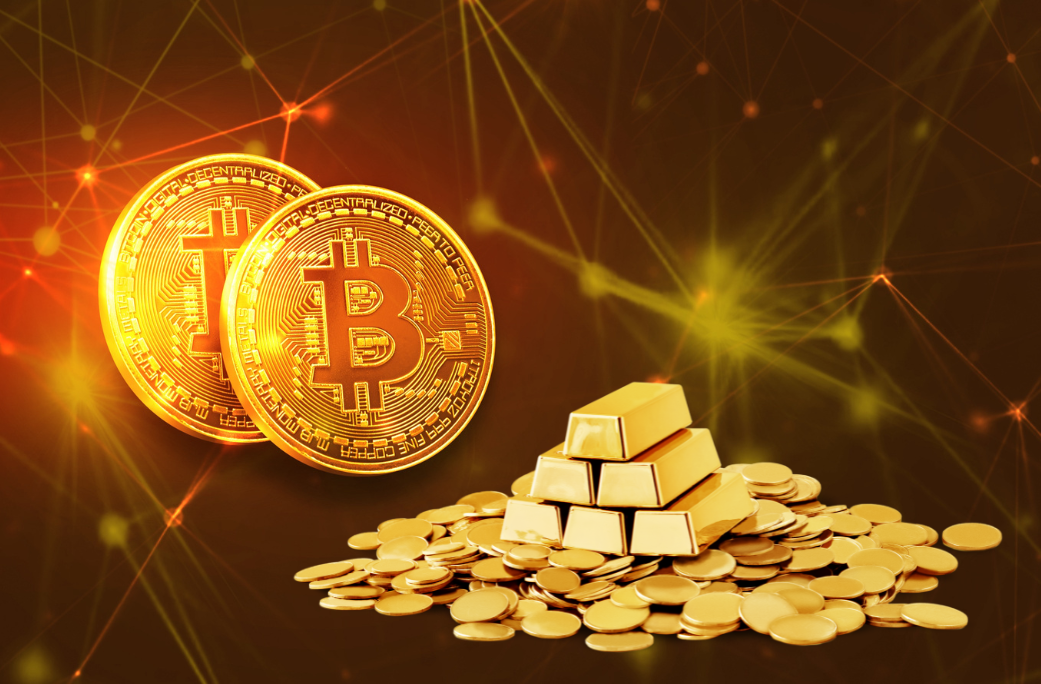Over the years, Bitcoin has often been referred to as digital gold due to its low correlation with other assets and its usefulness for hedging inflation. But exactly how similar are Bitcoin and gold, and is it possible that one day they could replace each other? In this article we will take a deeper look into their similarities, and differences and whether or not Bitcoin can one day replace gold. So, if you are planning to trade or mine Bitcoin, then you may visit the Bitcoin Era AI system .
What is Gold?
Gold has been a prominent asset for centuries, but its exact origin and discoverer are unknown since it was used by multiple ancient civilizations. Still, gold is sought-after today because of its exceptional ability to retain value over time. Even in the worst economic conditions, gold remains an excellent form of investment due to its financial security and stability. Consequently, when bear markets ensue, investors flock towards this precious metal as a safe havening opportunity. Gold has been utilized as a currency in numerous nations, which makes it an extremely versatile resource.
What is Bitcoin?
Bitcoin is an innovative electronic currency made up of blockchain technological innovation. Created by the anonymous Satoshi Nakamoto in 2009, it has since become the world’s most valuable cryptocurrency and has been used to facilitate peer-to-peer transactions without any intermediaries such as banks or governments getting involved. Not only is Bitcoin popular as an alternative form of payment, but due to its perceived value, it also appeals greatly to investors and speculators.
What are the similarities between Bitcoin and Gold?
Rarity
Gold and Bitcoin possess a distinct characteristic: limited supply. By the year 2140, it is forecasted that 21 million Bitcoins will have been mined in total – an insurmountable number. Similarly, gold production has slowed down due to most of the surface-level reserves being mined out already. Owing to their scarcity and finite amount, both assets remain largely unaffected by inflation making them attractive investment opportunities going forward.
Speculative Investments
If you’re looking to speculate and make significant gains, both Bitcoin and gold are viable investment options. While the price of Bitcoin tends to fluctuate wildly, it offers potentially huge rewards if you can correctly predict its future movements. Gold may not experience as much volatility in terms of pricing but still allows investors to make profits from predicting details about price changes over time.
Fungibility
Fungibility, or the ability to exchange one asset for an identical equivalent of the same type, is a central concept in finance. Examples of fungible assets include Bitcoin and gold, where you can swap out one unit with another without any difference in value.
What are the differences between bitcoin and gold?
Tangibility
Bitcoin gives you an advantage in terms of portability. It is a virtual currency, so it can be stored entirely on your smartphone with no physical form. This means you can move around $100,000 without any hassle or risk – something that would prove much more difficult doing the same amount in gold.
History
Throughout the ages, gold has long been trusted as a reliable store of value. In comparison to this timeless asset, Bitcoin is relatively new – having only existed for 14 years. Additionally, its value fluctuations and lower popularity still leave many uncertain about its reliability when compared to that traditional safe haven- gold.
Regulations
Gold has traditionally been considered universal collateral in many countries, and lenders often accept it as security for loans. However, some governments have expressed concern about the illegal mining of gold and other unacceptable practices surrounding its use. On the contrary, Bitcoin presently cannot be regarded as a universal collateral due to its uncertain regulatory status in several parts of the world.

COMMENTS